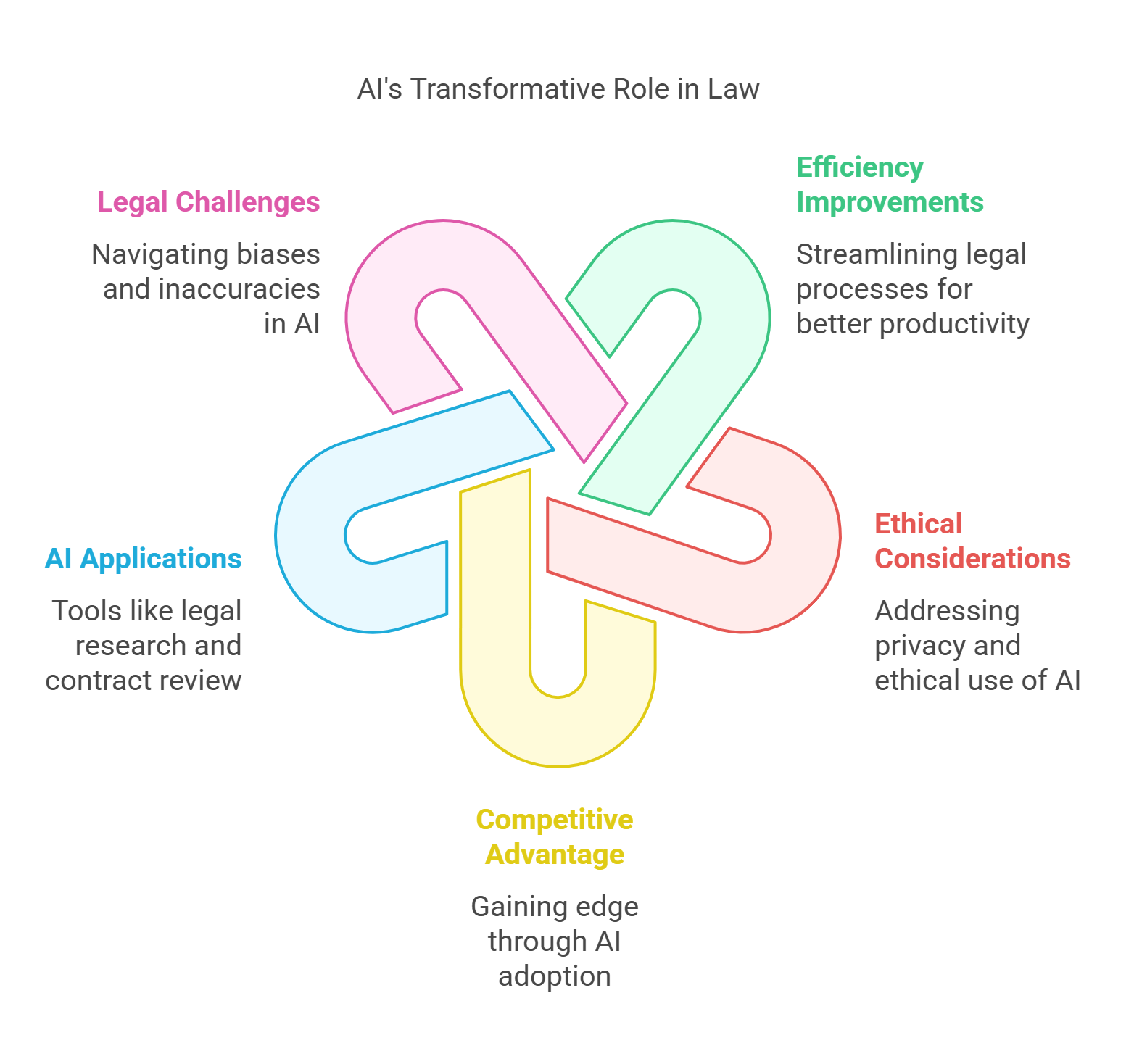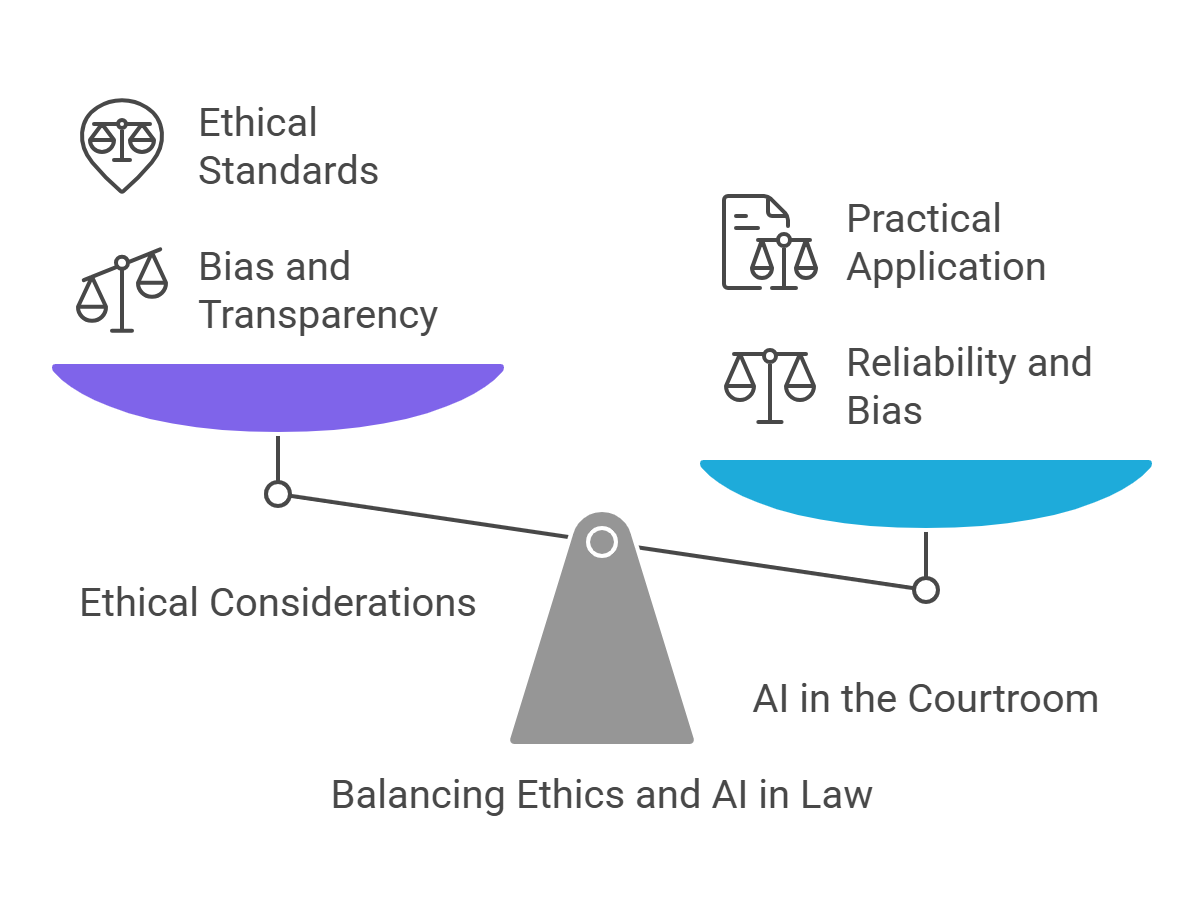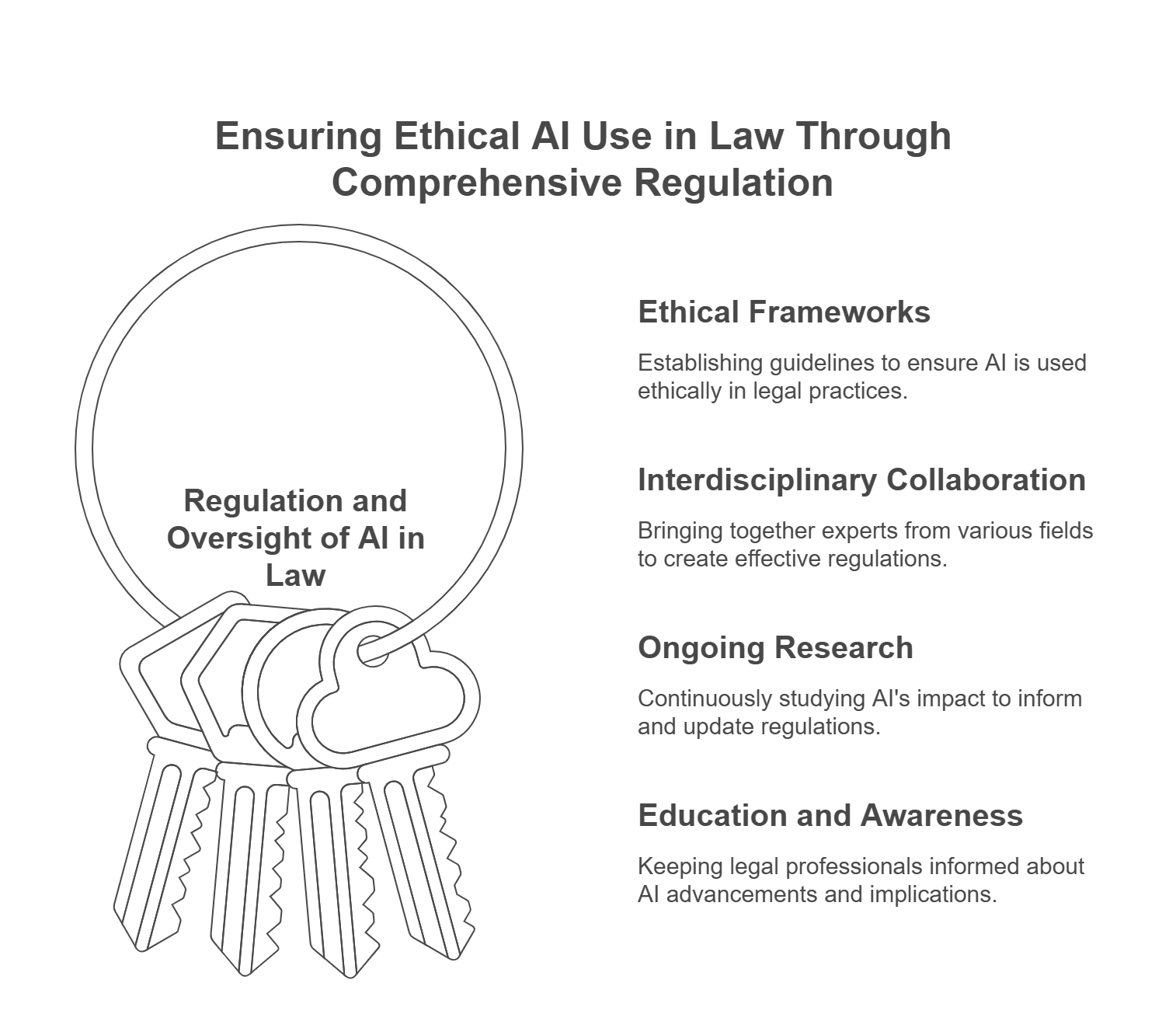The Impact of Artificial Intelligence on the Legal Profession
Artificial intelligence (AI) is at the forefront of a transformative wave within the legal profession, providing law firms and practitioners with the tools they need to automate manual processes and operate more efficiently. With platforms like Lead Autopilot AI, legal professionals can streamline tasks such as client outreach and case management, ultimately leading to improved service delivery. Machine learning algorithms play a crucial role in these platforms, enabling more accurate predictions and efficient task automation.
AI-powered tools not only simplify routine tasks but also enhance the quality of legal work by minimizing human error and expediting research processes. However, as AI continues to evolve, it raises significant ethical questions and potential risks, particularly concerning privacy and the ethical use of AI-generated insights. Legal professionals must navigate these complexities while integrating AI technologies into their practices, ensuring they uphold the values of the legal profession even as they leverage cutting-edge tools.
Moreover, the advent of AI is reshaping the manner in which legal services are offered. The focus is shifting towards leveraging AI’s capabilities for increased accuracy, efficiency, and reliability in legal processes. As firms adapt to this new reality, those that embrace AI-driven solutions are likely to gain a competitive edge, paving the way for a more modern approach to law. Additionally, basic legal information is becoming increasingly accessible through AI, which is crucial for obtaining comprehensive legal services, though concerns about equitable distribution remain.
Understanding AI in Law
Artificial intelligence encompasses a wide range of technologies that utilize computer systems and software to simulate intelligent human behavior. In the context of the legal field, AI manifests through various innovative applications, including AI-powered legal research tools, contract review solutions, and legal brief analysis software. AI also plays a significant role in drafting legal briefs efficiently and accurately, though it comes with risks such as potential inaccuracies or fictitious legal citations. Predictive analytics, powered by AI, can forecast case outcomes and inform legal strategies, providing a competitive edge to legal professionals. These tools harness the power of AI to sift through vast amounts of data, offering insights that would take human professionals significantly longer to achieve.
One notable implementation of AI in law involves the use of large language models (LLMs). These advanced AI models generate human-like text and can be utilized to provide predictive insights into legal matters. While LLMs can enhance efficiency and accuracy in legal analysis, the legal profession must also remain vigilant about the implications of bias and the potential for inaccuracies that may arise from AI-generated suggestions.
As legal professionals increasingly incorporate legal AI into their workflows, understanding the capabilities and limitations of these technologies becomes crucial. Continual education and training are essential in helping legal teams maximize AI benefits while mitigating any unintended consequences.

The Future of Law Firms in the Age of AI
The integration of AI tools, such as Lead Autopilot AI, into the law practice signifies a significant evolution in the legal landscape. To remain competitive, firms are increasingly turning to these AI-powered solutions, which enable them to provide more effective and efficient services to their clients. By adopting automation, firms can streamline the preparation of legal documents, enhance legal research capabilities, and ensure timely client communication. A law firm must navigate ethical implications while leveraging AI, distinguishing between consumer AI and specialized legal AI tools designed for firm use.
As AI reshapes the operational framework of law firms, a sharper focus on automation is driving innovation in service delivery. For instance, with AI handling more routine tasks, attorneys can allocate more time towards strategic planning and high-value legal work. This paradigm shift not only boosts productivity within firms but ultimately leads to a higher standard of legal service for clients.
Additionally, law firms are leveraging AI to refine their approaches to case analysis and management, ensuring better outcomes through data-driven insights. By harnessing advanced analytics capabilities, firms can assess case trends and develop more effective legal strategies, thereby improving their overall success rates.
Ethical Considerations and Risks
The rapid adoption of AI in the legal industry brings with it an array of ethical considerations that practitioners must confront. Concerns surrounding bias, accuracy, and transparency are paramount in AI implementation. Algorithmic transparency is essential to ensure that AI systems are understandable and accountable, reducing the risk of biased or unfair outcomes. Legal professionals need to be conscious of the potential implications of AI decision-making, particularly when it pertains to sensitive client matters.
For instance, AI models can inadvertently perpetuate bias if they are trained on skewed datasets. This bias can manifest in various forms, including discriminatory outcomes in legal advice or differential treatment based on irrelevant characteristics. Consequently, it is imperative for legal professionals to critically evaluate the tools they utilize and ensure that their AI systems adhere to ethical standards.
Furthermore, the legal industry is actively developing guidelines and regulations aimed at addressing the ethical implications of AI. These standards serve as a means of safeguarding clients’ rights while promoting accountability among legal practitioners. Legal professionals have a responsibility to ensure that their use of AI contributes positively to the profession and aligns with established ethical principles.
AI in the Courtroom
Artificial Intelligence (AI) is making significant inroads into the courtroom setting, shifting the paradigm for legal evaluations and decision-making. AI’s ability to process vast amounts of data quickly can aid in predicting case outcomes or the effectiveness of legal strategies. Legal analytics, powered by AI, provide valuable insights by analyzing past case data and identifying patterns that can influence current legal decisions. These insights are garnered from existing legal precedents, enhancing the lawyer’s ability to strategize effectively. AI technologies can also be applied in criminal law for predictive analytics and the drafting of legal briefs.
Nevertheless, the utilization of AI in legal proceedings prompts critical discussions around its reliability and potential bias. Legal professionals must navigate these treacherous waters carefully, ensuring that AI-generated evidence or suggestions do not inadvertently skew justice. As AI continues to evolve, it is imperative that those in the legal field remain informed and critically engaged with these technologies, ensuring they serve justice rather than detract from it.
AI tools like Lead Autopilot are examples of merging technology with legal processes to streamline operations. These tools aid not only in behind-the-scenes preparation for court cases but also shape the nature of courtroom interactions through thorough, data-backed insight generation.

Generative AI’s Potential in Law
Generative AI stands at the frontier of innovation within the legal sector, offering transformative possibilities across various applications such as legal research, contract review, and document analysis. Natural language processing (NLP) is a key component of generative AI, enabling the analysis and generation of human-like text for legal documents and communications. This technology enables legal practitioners to automate routine tasks, thus freeing up valuable time that can be redirected towards more strategic endeavors.
The potential of generative AI to enhance productivity is substantial; by automating standard procedures, lawyers can devote their energy to complex cases that require nuanced human judgment. Nevertheless, the implementation of generative AI must be approached with care, as it too poses risks related to bias and accuracy.
As generative AI applications proliferate in the legal domain, careful consideration must be given to ethical implications. Organizations need to establish clear guidelines for the deployment of these technologies, ensuring that they both comply with legal standards and uphold the integrity of the profession.
With platforms such as Lead Autopilot, legal professionals can implement generative AI thoughtfully, capitalizing on its capabilities while diligently mitigating its risks. These tools help bridge the gap between innovative potential and practical application in everyday legal tasks.
Regulation and Oversight
Amidst the enthusiastic adoption of AI technologies, the legal industry is actively working to establish comprehensive guidelines and regulations designed to address the ethical implications of AI. Regulatory bodies and legal associations are grappling with the complexities of ensuring transparency, accountability, and fairness in AI applications within the legal field. The development of ethical AI frameworks is crucial to guide the responsible use of AI technologies in law.
Governments and policymakers are recognizing the pressing need to oversee AI technologies to prevent misuse and promote ethical practices. The regulation of AI in law is an ongoing process that requires interdisciplinary collaboration among lawmakers, legal practitioners, technologists, and ethicists.
The aim is not only to foster a conducive environment for AI innovation but also to create safeguards that protect legal professionals and their clients from potential risks associated with AI deployment.
Ongoing research is pivotal, providing a foundation for these regulatory endeavors. Insights from interdisciplinary collaborations—spanning technology, law, and ethics—are essential for crafting comprehensive regulations that accommodate technological advances while preserving the justice system’s fairness and transparency.
The Importance of Ongoing Research and Study
Understanding the implications of AI in legal practice necessitates ongoing research and study. It is vital that legal professionals stay informed about the latest developments and advancements in AI technologies and their applications within the legal context. The transformative effects of AI on the legal world highlight how it can enhance efficiency and potentially change legal practices through improved technology.
Regular engagement with emerging technologies equips lawyers with the knowledge to leverage AI responsibly and effectively. Given that AI’s impact on the legal profession is multi-faceted, collaboration among legal experts, technologists, and ethicists will foster comprehensive strategies that maximize AI benefits while addressing associated challenges. By prioritizing education and interdisciplinary dialogue, legal practitioners can ensure that their practices align with the evolving landscape shaped by AI.

Conclusion
AI is undeniably reshaping the landscape of the legal profession, ushering in a new era defined by heightened efficiency, precision, and innovation. Nevertheless, the integration of AI entails navigating intricate ethical considerations, necessitating deliberate regulation and cautious application.
Law firms that harness AI solutions like Lead Autopilot are well-positioned to lead in this transformative phase. These platforms enhance operational capabilities by automating routine tasks and providing valuable insights that bolster legal strategies.
Despite the uncertain terrain ahead, the presence of AI in legal practice is steadfast. Legal professionals must be prepared to embrace change and evolve alongside technological advances to maintain their competitive edge. Adapting to these developments assures that law firms not only survive but thrive in this new digital epoch.
For further guidance on integrating AI into your legal practice, please [contact us](). We are here to support your journey into the future of law.